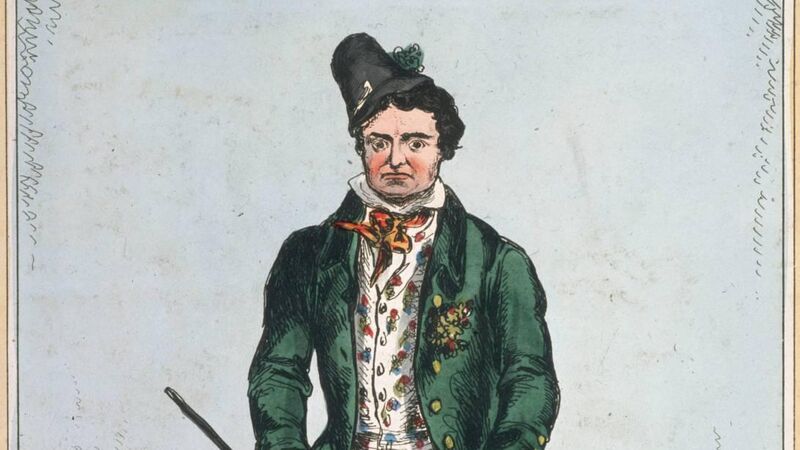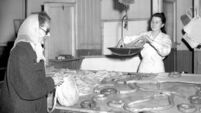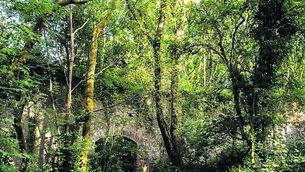Saluting Liberator Daniel, on his 250th anniversary

An 1829 illustration of Irish politician and activist Daniel O’Connell (1775-1847)
Parliamentary politics are the means by which a parliament interacts with voters, forms legislation, and the ways by which the members of parliament interact with each other.
Utilised throughout Irish history, parliamentary politics enabled activists and politicians, such as Daniel O’Connell, The Liberator, to win rights from within the parliamentary system. Beyond that, parliamentary politics was a key element in the formation of the Dáil na hÉireann and the independent Irish state.
O’Connell’s campaign for catholic emancipation chiefly exemplifies the effectiveness of parliamentary politics, not only in winning legal rights for an oppressed group, but in integrating and motivating that group politically, setting them up to earn further freedoms down the line, and in the ways the structure of the parliaments itself leads to liberation. By use of peaceful protest and later by exploiting his platform within the British parliament, O’Connell successfully emancipated the catholic population of Ireland from strict penal laws.
His formation of the Catholic Association in 1825 was a landmark of political change, not only in Ireland but across Europe. It was one of the first mass-membership political movements, enabling the marginalised catholics to mobilise and peacefully fight for their rights, while their numbers guaranteed they would be heard without a need for violence.
Their efforts were instrumental in shaping legislative change within the already existing political framework, making the British parliament work for them.
They orchestrated peaceful mass meetings and utilised petitions to demonstrate the catholic opinion and the need for reform, significantly influencing the British parliament. However, without representation in parliament, their goals went unrealised.
The next step in their emancipation was to elect a catholic representative to the British Parliament. This resulted in the British government passing the Catholic Relief Act and this success paved the way for more catholic and Irish voices to break through, proving representation in parliament can inspire further political interest and action.
At the beginning of the 1800s, catholics could claim a strong tradition of political passivity but O’Connell changed this stance forever. He was their ‘foot-in-the-game’ and, following his example, catholic involvement in the Parliamentary system increased through the 1800s - by 1831 there were eight catholic MPs fighting for further liberation. This ‘snowball’ effect of activism and involvement, enabled by the democratic and voter-centric structure of parliament, further enhances liberation movements- their actions attract attention, encouraging debate and interaction with the public, and as interest and debate builds, the stakes are raised, pushing more and more people to become more and more involved.
These efforts and the avalanche of political involvement brought the catholic issue to the feet of the British parliament.
The eventual success of catholic emancipation in 1829 demonstrated the effectiveness of parliamentary politics as collaboration between the various political groups, including Tories and whigs, showcased how parliaments inspire cooperation, coalition and the melding of various viewpoints, leading to the overcoming of social issues and barriers to equality.
The success of the Roman Catholic Relief Act of 1829 demonstrated the importance of organised advocacy in achieving legal reforms and set a precedent for future civil rights movements and organisations, and how they peacefully interact with government bodies.
Democratic parliaments hold space for demonstrative actions and organisations and in doing so, hold space for change in the social structure, allowing liberation movements to thrive. The Catholic Association could not have formed without the culture of debate and discussion fundamental to and supported by the British parliament, and would not have been taken seriously without O’Connell’s election, which, in turn, was only brought about by the overwhelming catholic support for him. Catholic emancipation is a victory of peaceful protest and the use of parliamentary politics.
However, full freedom and liberation is impossible without full representation, and parliamentary politics can only be fully utilised when they fully represent the voting population - Irish liberation could only come about through an Irish parliament.
Dáil Éireann, established in 1919 as the revolutionary parliament of Ireland, was the key to freedom. Providing a legitimate political framework for the Irish nationalist movement, and inspiring cooperation between the multiple and diverse fractions of Irish politics, its formation was essential as it was the face of the collective rejection of British rule and an assertion of self-governance. It served as a legislative body, representing the ideas of the Irish people, on a national and international level. By refusing to sit in Westminster, MPs demonstrated their commitment to an independent Irish parliament, fostering national unity and public support for the independence struggle. This strengthened efforts towards establishing a functioning government that could operate independently of the British.
The movement for independence needed to encompass all the functions of an independent nation, so beyond their separate governance, the Dáil coordinated a movement for economic autonomy and independent funds for its operations, providing internal grants and working towards establishing an Irish economy. This fought the British authority on all fronts and highlighted the need for economic autonomy to achieve political liberation.
Political parties in the Dáil worked together to create an image that undermined the legitimacy of British authority while promoting Irish sovereignty. Their common purpose led to collaboration among heavily divided groups, leading to debate and discussion, ultimately contributing to a balanced and strong national front. Dáil Éireann laid the foundations for future state-building and ultimately contributed significantly to Ireland’s path toward achieving full liberation, on economic, social, and legislative levels, and in the eyes of the international community.
Parliamentary politics were the foundation of the Irish Free State and the campaign for catholic and Irish rights that came before it. From the actions of O’Connell, to the rebellious rise of Ireland’s own Dáil, Irish history is a testament to parliamentary tradition, to the use of politics in the fight for freedom and rights, and to the importance of representation.
Rachel Barry was a recipient of the Highly Commended Award at the Oireachtas Essay Competition for this essay. The theme this year being41658815 Parliamentary Politics Liberates, marking the 250th anniversary of the birth Daniel O’Connell on August 6.







 App?
App?




